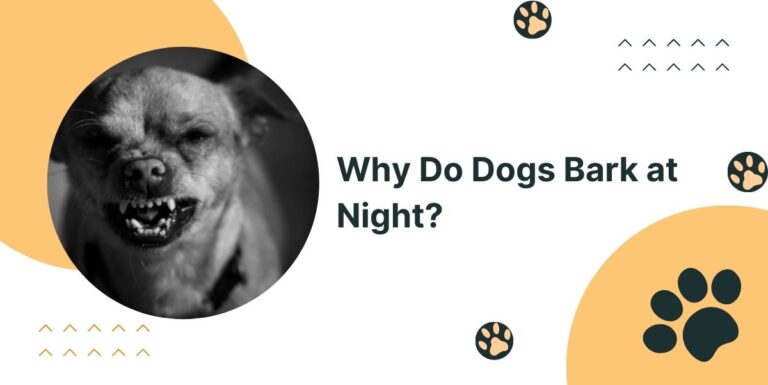If you’ve ever played music at home and noticed your dog joining in with a long, soulful howl, you’re not alone! Many pet owners experience this and wonder what’s behind this unique behavior. While it might sound funny or even a little dramatic, there’s actually some interesting science behind this behavior. Dogs don’t just howl for no reason, it is linked to their instincts, communication habits, and how they hear sounds. So the clear answer to this is yes, dogs do howl to music because it’s a means of communication.
Let’s break down why dogs howl when they hear music, what kinds of sounds trigger their howling, whether it means they’re upset, and how different breeds and personalities may influence their musical responses.
The evolutionary root of howling
Howling is deeply rooted in your dog’s ancestry. Dogs are descendants of wolves, and for wolves, howling is a key part of communication. Wolves use howling to signal their location, bring the pack together, mark territory, and warn others to stay away. Modern dogs may live in our homes, but their brains still carry this ancient instinct.
Over thousands of years, though dogs have become household companions, this vocal behavior remains, though its meaning and frequency may have shifted with domestication and different living environments
What types of sound or music make dogs howl?
Dogs don’t howl to all sound and music. Their are certain sounds or elements that trigger dogs. Dogs hear sounds differently than humans. They can detect higher frequencies and subtle tones we might not even notice. Some elements of music, especially high-pitched instruments like flutes, violins, or even a person singing in a high tone, can sound like another dog howling to them.
1. High-pitched sounds
Howls, sirens, and musical notes in higher ranges get dogs going. Instruments like flutes, clarinets, or even human singing at high pitch can sound to a dog like another animal vocalizing.
2. Long, sustained notes
Dogs are attracted to sounds that resemble the drawn-out nature of howling, such as a held note in music or a continuous tone.
3. Unique harmonics
Some dogs react to parts of music we can’t hear. Their sense of hearing goes above our range, so there might be high-frequency elements in music that trigger them.
Not all music is equal to a dog’s ear. Studies have shown that:
- Classical music A study by Kinnaird and Wells (2022) suggested that classical music often calms dogs.
- Heavy metal or very loud, chaotic music can agitate them.
- Pop music typically does not get much reaction.
Is dog howling a sign of distress or just communicating
This is one of the most common concerns pet owners have. Many dog owners worry that their dog is in pain or scared when they howl at music, but that’s not always the case. Most of the time, dogs howl to music as a natural form of communication.
Here’s how to tell the difference:
Signs of normal, non-distressed howling:
- Your dog appears relaxed or alert, not anxious
- Their tail is in a neutral or slightly raised position
- They stop howling when the music stops
- Their body language is calm
- They might even seem to enjoy the “singing session”
Signs that might indicate discomfort:
- Pacing or restless behavior
- Flattened ears or tucked tail
- Trying to leave the room
- Continued distress after the music stops
- Other stress signals like panting or drooling
Most dogs who howl at music are simply responding to what they perceive as a social call. They’re trying to “join the pack” – in this case, the pack is you and your music. It’s an instinctive action rooted in their social nature.
How individual dogs and breeds differ
Not every dog will howl at music, and some breeds or personalities are much more vocal than others. Just like people have different musical preferences, dogs vary widely in their responses to music. Some dogs are natural “singers” while others couldn’t care less about your playlist.
Vocal breeds
- Hounds (like Beagles, Basset Hounds, and Bloodhounds) are often the most vocal. They were bred to use their voices for hunting, so they’re naturally more inclined to howl.
- Northern breeds (Huskies, Malamutes, and other spitz-type dogs) retain strong wolf-like characteristics and often howl readily at music.
- Herding breeds might howl occasionally, as they were bred to communicate across distances with their handlers.
- Many toy breeds and some working breeds are less likely to howl at music, though there are always individual exceptions.
Individual variation
Just as people have different tastes and personalities, so do dogs. Some dogs simply enjoy joining “the chorus” more than others. Sometimes, a dog will learn to howl because their owners give them extra attention or encouragement when they do it (this is called classical conditioning)
How might the frequency or tone of sounds influence a dog’s likelihood to howl
Dogs hear much better than humans, especially when it comes to high-pitched sounds. Some types of music or noises can trigger their instinct to howl. Here’s why:
1. High-pitched sounds grab their attention
Dogs are very sensitive to high sounds. They can hear things between 3,000 and 12,000 Hz clearly — much higher than what most humans can hear. So when they hear high-pitched music notes, sirens, or alarms, it can sound similar to howling. This often makes them want to howl back.
2. They like to stand out
Dogs can tell the difference between high and low tones. Just like wolves in a pack, your dog might change the pitch of their howl to stand out or join the “group” sound. Long, steady music notes often remind them of howling in the wild, and they respond naturally.
3. Some sounds can be uncomfortable
Very high-pitched or loud sounds (especially over 25,000 Hz) can make some dogs uncomfortable or stressed. If your dog hides, runs away, or seems uneasy, they may not like the sound. But if it’s only mildly uncomfortable, they might howl instead.
4. Musical characteristics
Slow, melodic, and drawn-out tones are more likely to cause a dog to howl, while fast, erratic, or low-frequency sounds tend to have little effect or may only result in agitation or barking.
In summary, high-frequency, sustained, and melodious tones are most likely to make a dog howl because they resemble canine communication sounds from their evolutionary background and fit within the dog’s heightened hearing ability. Individual dogs and breeds can vary in their responses due to genetics and learned behaviors.
When to be concerned
While howling at music is often a normal and harmless behaviour, there are times when it might means there’s a problem that needs attention from vet or professional dog trainer.
You should be concerned if the howling is:
- Too much and constant: If a dog howls without stopping, even for treats, or if it’s a long time problem and causes disruption, it could means there’s and issue.
- Along with other stress signs: Howling combined with other signs of distress, like licking lips, hiding, shaking, lifting a front paw, pacing, destroying things, having accidents inside, or seeming sad, might point to anxiety or a fear of noise.
- A sign of pain or sickness: A sudden start or increase in howling, especially if the dog is usually quiet, could be a sign of pain, injury, or an underlying medical problem, such as a brain condition in older dogs or birth defects in younger dogs. A vet check-up is very important in these cases.
- Related to separation anxiety: Howling that only happens when a dog is left alone or separated from its owner, often with other signs of anxiety, is a key sign of separation anxiety.
Ways to manage howling
If your dog howls often and it’s not due to pain or serious anxiety, there are a few easy ways to manage it, especially if the howling gets annoying.
1. Reward quiet moments
Give your dog treats or praise only when they’re quiet. This teaches them that being calm gets them good things. If your dog howls just to get your attention, ignore the howling and wait for a quiet moment before giving any reward.
2. Slowly get them used to sounds
If music or certain noises make your dog howl, you can help them get used to it using a gentle method:
- Play the sound very softly at first.
- Give them treats or play with them while it plays.
- Slowly increase the volume over time.
This helps your dog feel more relaxed when they hear those sounds.
3. Keep their mind and body busy
Dogs may howl if they’re bored. Give them things to do like:
- Puzzle toys
- Treat-dispensing toys
- Slow-feeding bowls
Also, make sure they get daily exercise like walks and playtime.
4. Spend more time with them
Dogs need love and company. If they’re alone for too long, they might howl out of loneliness. Make time to:
- Cuddle
- Go for walks
- Play or train together
This helps them feel happy and safe.
5. Get help if needed
If the howling is serious or keeps happening, especially due to fear or being left alone, talk to a dog trainer or vet behavior expert. They can give you a clear plan to help your dog feel better.
When dogs howl at music, it’s not just noise, it’s a mix of instinct, sharp hearing, and their social nature. Most of the time, it’s their way of joining in, reacting to sounds that remind them of other dogs, or copying their humans. While some breeds and personalities howl more than others, it’s usually harmless. As long as your dog seems happy and relaxed, let them “sing along.” Understanding this behavior helps you connect better with your dog and enjoy their unique way of expressing themselves.
Common questions pet parents ask
Why does my dog howl when I play music?
Dogs howl at music because some sounds, especially high-pitched or long notes, remind them of howling in the wild. It’s their way of communicating or joining in socially.
Does howling at music mean my dog is in pain or scared?
Not always. Most dogs howl at music as a natural response, not out of fear. If your dog looks calm and stops when the music stops, it’s usually harmless.
Is it okay to let my dog howl at music?
Yes, as long as they seem happy and relaxed. It’s usually a fun way for them to interact. Only be concerned if the howling comes with signs of stress or illness.
Is howling at music a learned behavior?
Sometimes. If dogs get attention or praise when they howl, they may do it more often. It can become a fun habit for them.
Why doesn’t my dog howl at music at all?
Not all dogs are vocal. Breed, personality, hearing ability, and past experiences all play a role. Some are more reserved or simply uninterested in reacting to sound.
Can hearing loss affect how a dog reacts to music?
Yes. Dogs with partial hearing loss may react more strongly to certain frequencies or become more sensitive to vibration and pitch changes, leading to howling.




